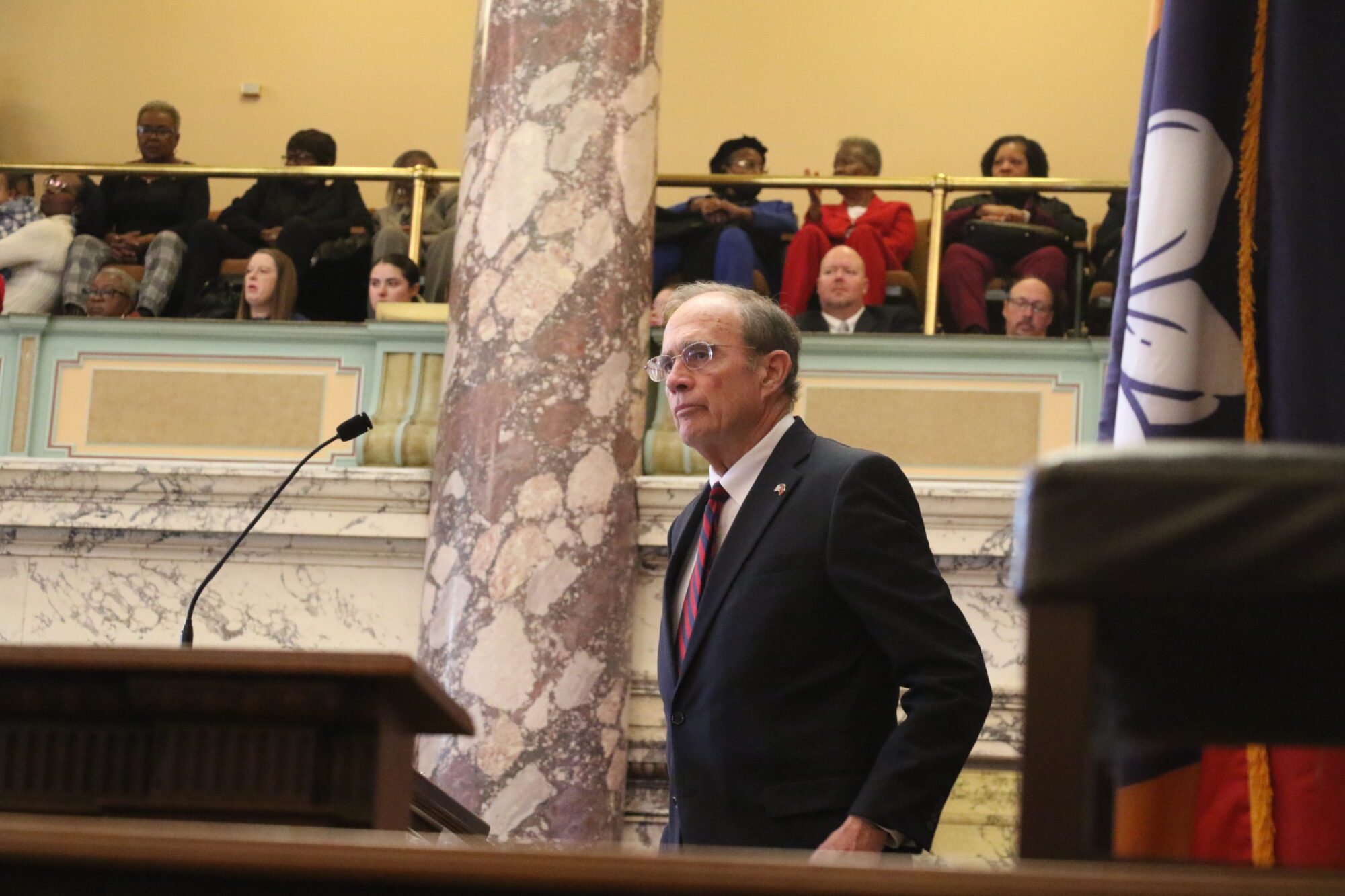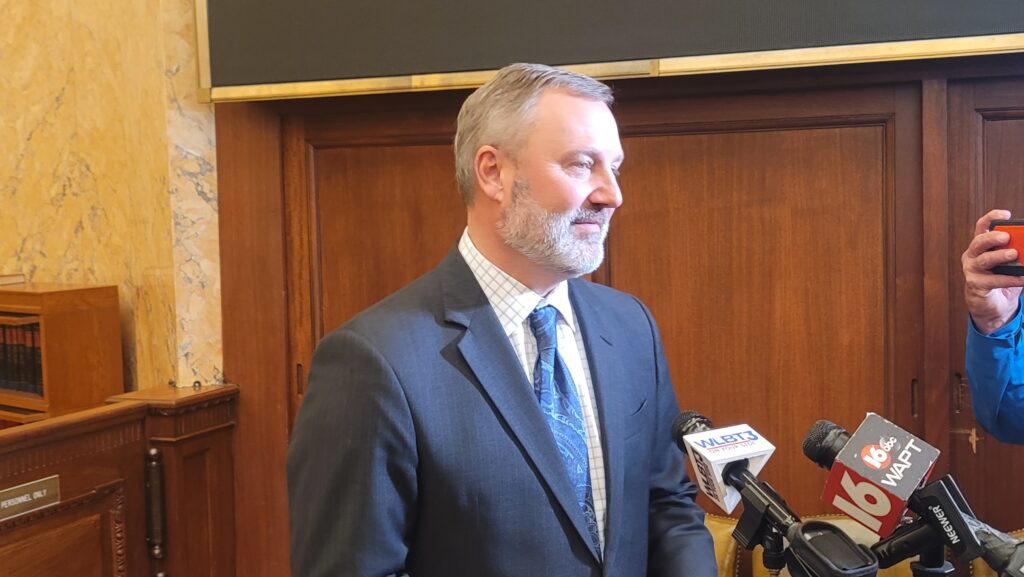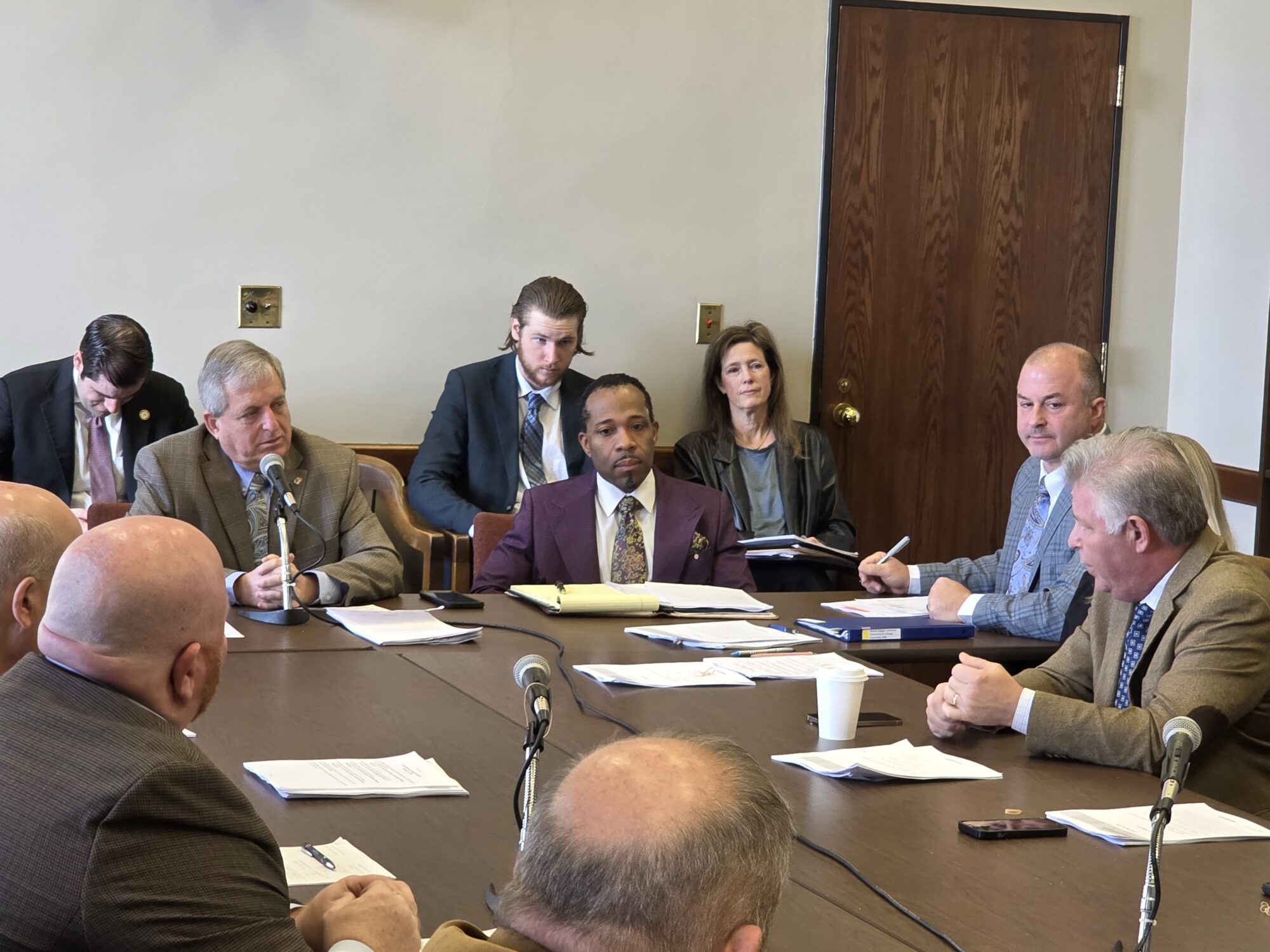
Lt. Gov. Delbert Hosemann prepares to gavel Mississippi's state senate into the first day of 2024's legislative session. (Photo by Jeremy Pittari)
Listen to the audio version of this article (generated by AI).
- The Mississippi Lt. Governor also says the Senate looks to adopt the tax credit program contained in the “One Big Beautiful Bill.”
Lt. Governor Delbert Hosemann says the Mississippi Senate will file legislation in the 2026 session that supports allowing public school-to-public school transfers, sometimes referred to as “open enrollment.”
“We think public-to-public transfer ought to be available,” Hosemann said on WLOX News This Week. “Wherever you are, wherever you want to go.”
Hosemann made similar declarations in the lead up to last year’s legislative session, but when the supermajority Republican Senate had an opportunity to pass an open enrollment bill, it died in Chairman Dennis DeBar’s Education Committee.
Mississippi law currently allows for the transfer of students between public schools, but only with the approval of both the school a child is currently enrolled in and the school they want to attend. Last session, as previously reported, the House passed HB 1435, which would have made the process easier by removing the veto power of the school the child wants to leave. The Senate did not act on the proposal.
Hosemann’s comments come as Speaker Jason White (R) and Republicans in the Mississippi House, who also hold a supermajority, have made education freedom their top agenda item heading into the 2026 legislative session.
White appointed a Select Committee on Education Freedom to explore the matter further this fall. Members have held hearings featuring various interested parties ahead of drafting legislation to be considered when the gavel falls in January.

The renewed push by the House comes after Speaker White’s chamber saw three rather modest school choice measures die in the Senate during the 2025 session, one of which was the transfer bill. The other bills would have allowed taxpaying parents to register their homeschool child in public school extracurricular activities and expanded charter schools to C-rated districts instead of limiting them to D- and F-rated districts.
President Donald Trump has also ramped up efforts to expand school choice nationally, making it a key piece of the Republican platform. The “One Big Beautiful Bill” Act signed into law this summer created the nation’s first federal school choice tax credit program.
Hosemann did tell WLOX that his chamber looks to adopt Trump’s tax credit program in the coming session. White has said the same.
As noted by EdChoice, the federal legislation creates a dollar-for-dollar tax credit of up to $1,700 per individual taxpayer for contributions to state-approved, federally recognized non-profits that distribute scholarships to eligible children. There is no cap on the total amount of donations and the program requires states to opt in, with a start date set for January 1, 2027.
While both open enrollment and the tax credit program would offer additional opportunities for children, they likely fall short of the President’s promise to deliver school choice options to every child in America. Central to the proposals supported by President Trump in surrounding states is an Education Scholarship Account, or ESA, that allows students to access the funds already allotted to them by the state for alternative use, including private school tuition.
Lt. Governor Hosemann has not been willing to publicly endorse these programs. He told the WLOX hosts, “But when you talk about choice, you have it here,” using an example of students coming into Bayou View Elementary School in Harrison County. He noted that some have been accepted in and pay tuition to the public school district to attend.
Hosemann said “most of the Senators” he’s talked to on the Coast “have a lot of concern about paying [public] money to private school.”
The Mississippi Democratic Party, along with public school lobbying groups such as The Parents Campaign, have taken up the mantra of “no public money for private schools” as the House moves toward expanded education freedom.
The same groups have also warned that taking dollars out of public schools in favor of students transferring to private schools would be detrimental to the common good.
In a similar vein, Lt. Governor told WLOX that if there were 50,000 to 60,000 transfer students out of public school to private school it would result in some $400 million “coming out of school budgets.”
“Some of the [private] schools have said they wouldn’t take it anyway, and then other schools said they would just raise their tuition so it wouldn’t help the parent after all,” Hosemann said.
However, the association that represents most of Mississippi’s private schools, Mid-South Association of Independent Schools or MAIS, recently came out in favor of an ESA proposal that would allow children to use their existing allotted dollars at one of their member institutions.
Hosemann went on to praise Coast schools for being highly rated, saying, “You don’t want your budget cut down here.”
Yet, as Empower Mississippi’s CEO Grant Callen recently wrote in an op-ed in Magnolia Tribune, “if lawmakers are trying to defund public education, they aren’t very good at it.”
“According to data from the Mississippi Department of Education, total State Appropriations for K-12 has climbed nearly every year since 2013, reaching record highs in 2024. Even more striking is the rise in Public School Spending Per Student—up more than 60 percent over the last decade, from $8,921 in 2013 to $14,677 in 2024,” Callen wrote. “That increase looks even more dramatic when you realize that Public School Enrollment has been steadily declining during the same period. In other words, Mississippi is spending a lot more money on fewer students. That’s the opposite of ‘defunding.’”
The Senate Education Committee is set to meet Tuesday, but no agenda has been released.
The House Select Committee on Education Freedom wrapped up its third hearing last week and could meet again prior to the start of the 2026 session.











